Finding the perfect canine companion often involves balancing personality, size, and maintenance. For many pet owners, a significant factor is managing shedding. If you’re seeking a pint-sized pal that leaves minimal hair around your home, you’re in for a treat. This guide explores a variety of small dog breeds known for their low shedding, ranging from those that don’t shed at all to those with very minimal hair loss. This will help you discover which breed is right for you.
Affenpinscher
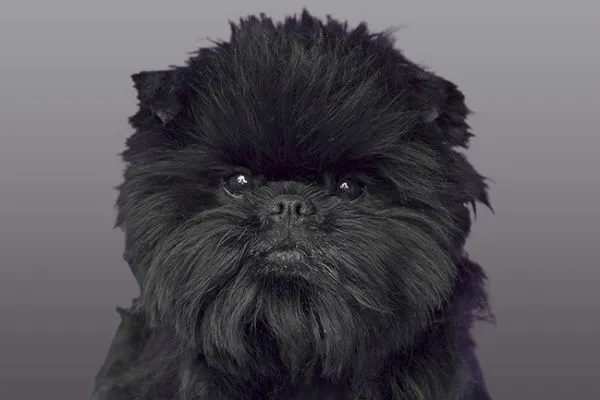 Affenpinscher
Affenpinscher
The name “Affenpinscher” translates to “monkey-like terrier,” a fitting description for this intelligent and expressive breed. Despite their small stature, these fearless dogs are alert and can deter any unwelcome visitors, meaning you won’t have to worry about unexpected guests or finding stray hairs in your meals. The Affenpinscher boasts a wiry coat that sheds very little and is also known for its lack of typical doggy odor. A simple twice-weekly brushing with a slicker brush and comb is sufficient to maintain their charmingly scruffy yet tidy appearance. This low-maintenance companion is celebrated for its delightful sense of humor.
Basenji
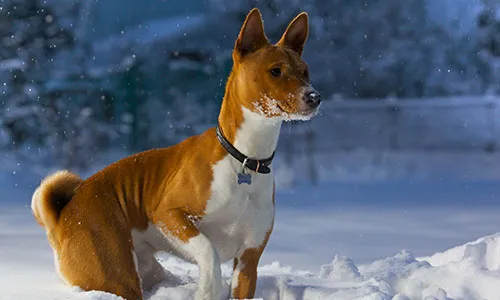 Basenji
Basenji
For those who admire the hound temperament but dislike the common issues of odor and shedding, the Basenji might be the ideal small dog. They shed minimally, and their short, fine coat requires little beyond an occasional brushing. Basenjis are also remarkably quiet, making them well-suited for apartment living, provided they receive ample daily exercise and playtime. These energetic dogs are a fantastic choice for owners looking for small dog breeds that dont shed and are calm when their exercise needs are met.
Bichon Frise
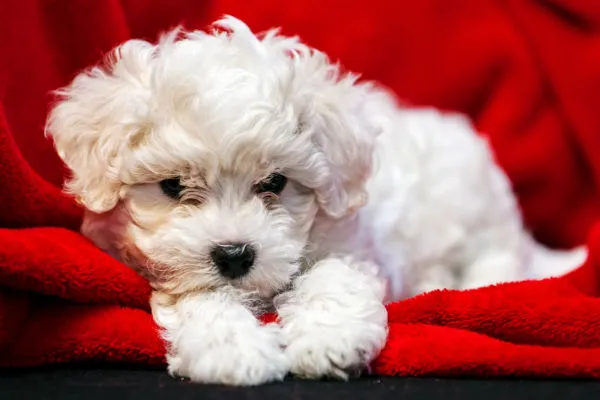 Bichon Frise
Bichon Frise
The Bichon Frise is a true non-shedding small dog breed. These cheerful and affectionate dogs are an excellent choice for individuals with allergies. However, they are not maintenance-free; their hair grows continuously, necessitating frequent grooming and regular brushing to maintain their signature fluffy, powder-puff appearance.
Bolognese
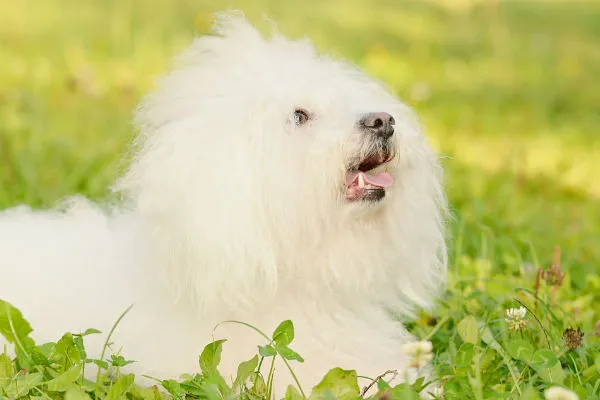 Bolognese
Bolognese
Similar to the Bichon Frise, the Bolognese possesses a distinctive fluffy coat composed of hair rather than fur. The Bolognese does not shed, but dead hair needs to be brushed out regularly. Their coat requires daily grooming to keep these endearing lap dogs looking their absolute best.
Brussels Griffon
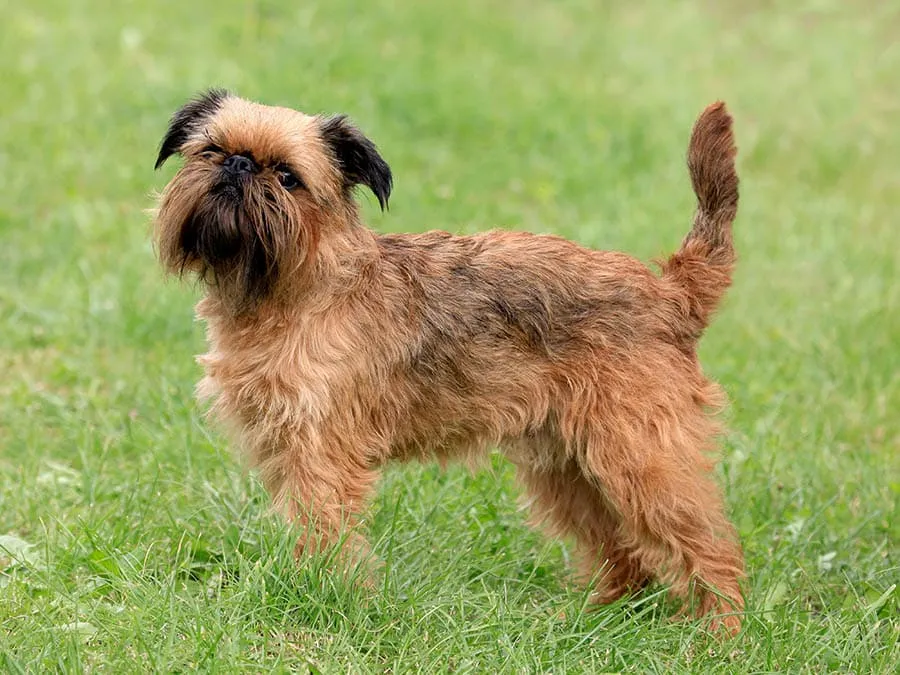 Brussels Griffon
Brussels Griffon
Despite their diminutive size, Brussels Griffons are not dogs that require excessive pampering. Both the smooth-coated and rough-coated varieties of this breed thrive with regular grooming and are minimal shedders. Their small size means that a daily walk and indoor play sessions are usually enough to meet their exercise requirements. This loyal little dog is happiest with families who spend a good amount of time at home.
Chinese Crested
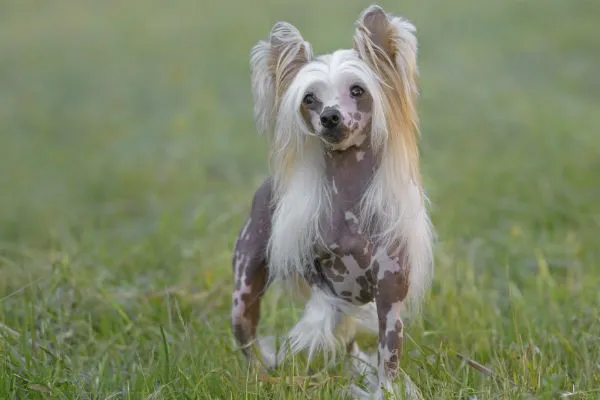 Chinese Crested
Chinese Crested
One effective way to avoid shedding altogether is to opt for a small hairless dog breed. The Chinese Crested comes in two coat varieties: hairless and powderpuff. Hairless Chinese Crested dogs have hair on their heads, tails, and feet, while the powderpuff variety is covered in a coat of fine hair that sheds very minimally. Hairless breeds require extra care for their skin, needing protection from the sun and cold and being more susceptible to skin irritations.
Coton de Tulear
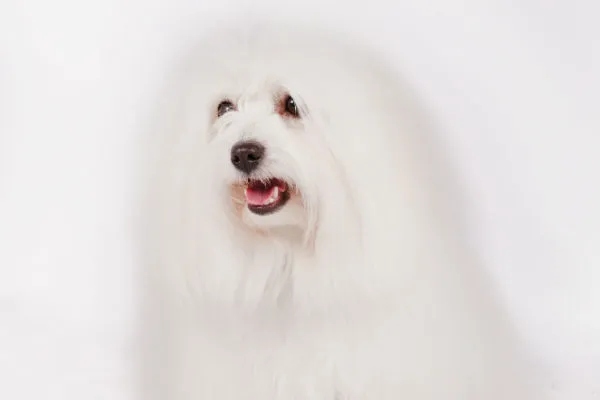 Coton de Tulear
Coton de Tulear
The Coton de Tulear features a distinctive, long, fluffy coat that is considered hypoallergenic, making it a suitable option for allergy sufferers and those seeking a small dog with low shedding. While Coton de Tulears require daily grooming to maintain their coats, their lighthearted and gentle nature makes the effort well worth it.
Havanese
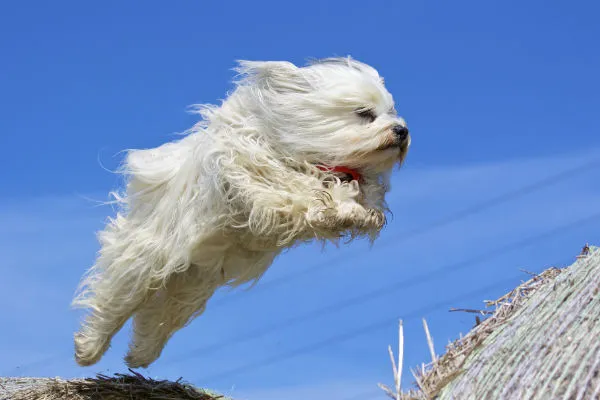 Havanese
Havanese
These charming dogs, native to Cuba, offer their owners both a spunky personality and a coat that doesn’t shed much. This translates to less time spent de-linting furniture and more time enjoying playful romps with your Havanese. Their coat requires weekly brushing and regular baths to keep them clean and healthy.
Maltese
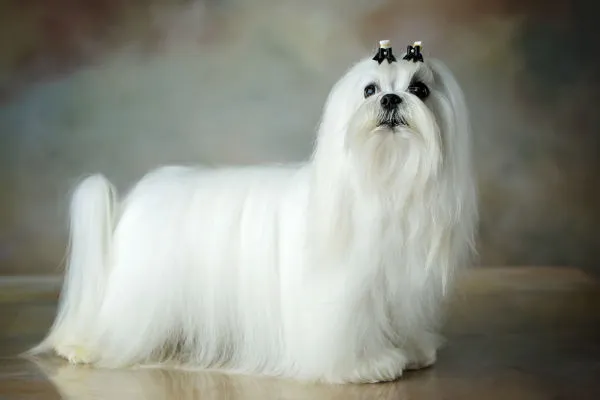 Maltese
Maltese
Maltese dogs have been charming humans for millennia. This ancient breed from Malta has remained remarkably consistent, perhaps partly due to their long, white coats that shed very little, making them ideal lap dogs. Their coats do require regular brushing to prevent matting, and occasional baths help remove dirt and debris from their long, silky hair. These are excellent examples of dog breeds that dont shed and stay small.
Lhasa Apso
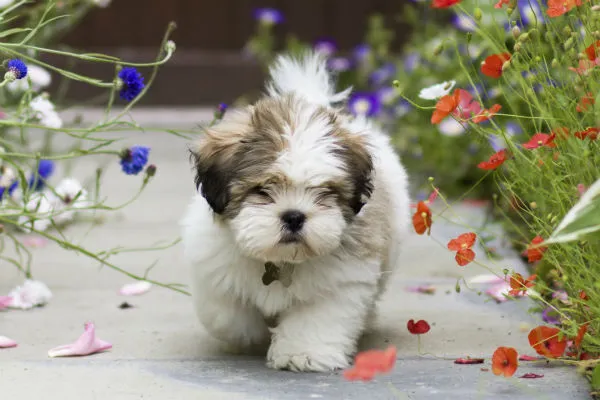 Lhasa Apso
Lhasa Apso
This small dog breed originating from Tibet makes an excellent companion. Calm yet playful, the Lhasa Apso enjoys brisk walks and resting on its owner’s lap. Lhasa Apsos don’t shed significantly, but their coats do require maintenance. Many owners opt for a clipped “puppy cut” to minimize the need for daily grooming and brushing of their long hair.
Miniature Schnauzer
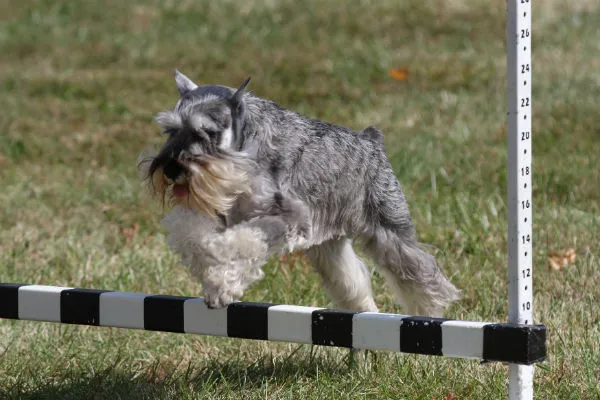 Miniature Schnauzer
Miniature Schnauzer
The Miniature Schnauzer is an intelligent, trainable, and cheerful little dog, closely resembling its Standard Schnauzer relatives. This Terrier sheds very little, and their adaptability means they are comfortable living in the city or the country, as long as they are close to their people. To keep Miniature Schnauzers looking their best, incorporate weekly brushing and regular grooming into their routine.
Poodle
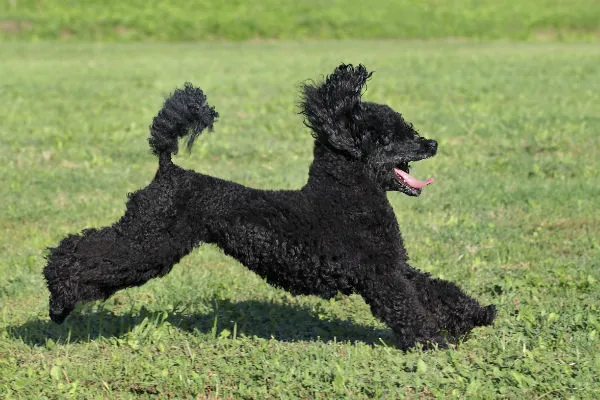 Poodle
Poodle
When discussing small, non-shedding dogs, Poodles are often the first breed that comes to mind, and for good reason. Poodles are non-shedding and hypoallergenic. Miniature and Toy Poodles offer these qualities in petite, intelligent packages, differing only in size from their Standard counterparts. All Poodles are highly intelligent, making them easy to train, and they are an active, proud breed. Their hair does require regular grooming. For those seeking such characteristics, exploring small dog breeds that don t shed and stay small often leads to the Poodle.
Scottish Terrier
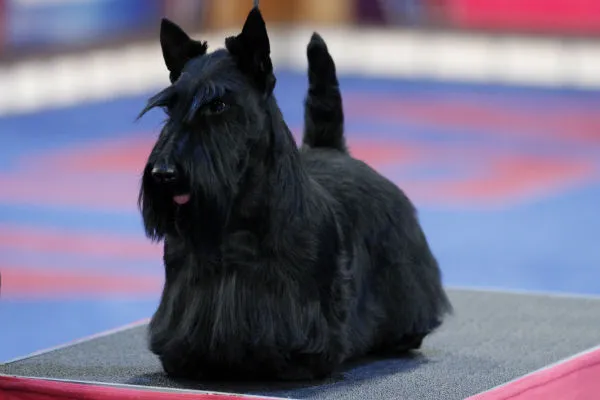 Scottish Terrier
Scottish Terrier
The Scottish Terrier, or Scottie, is a bold, confident Terrier breed with a big personality. Their wiry, weather-resistant coat sheds very little, though they do require regular brushing, grooming, and occasional hand-stripping to maintain coat health and the breed’s outline. Scotties are clever and independent dogs with strong prey drives, necessitating caution around smaller animals.
Shih Tzu
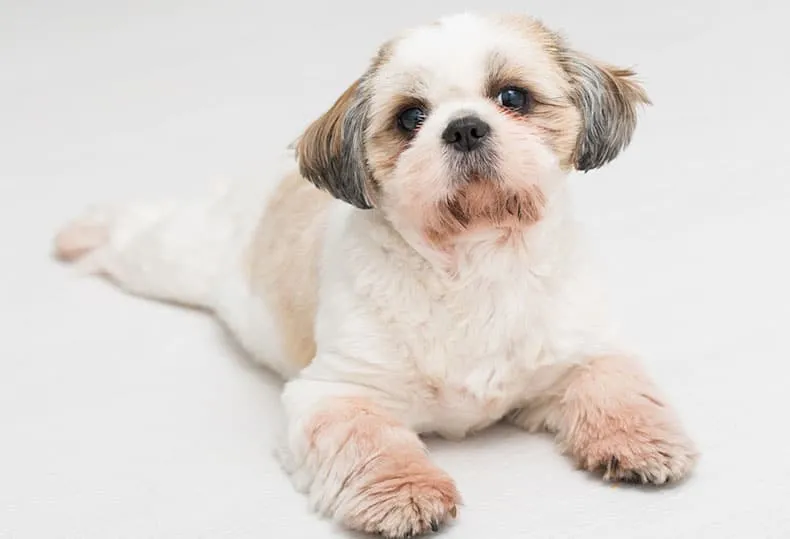 Shih Tzu
Shih Tzu
The Shih Tzu boasts a long and distinguished pedigree, having been a favored house pet of the Tang Dynasty. These “little lion dogs” come in a variety of colors and patterns. Their long, silky hair is very low-shedding and looks exceptionally regal when brushed out, befitting their royal ancestry. This sturdy and lively Toy breed carries itself with an air of arrogance, due to their proudly held heads and curled tails. Bred as house pets, their gentle and trusting nature makes them exceptional companions.
West Highland White Terrier
 West Highland White Terrier
West Highland White Terrier
The coarse, white hair of the West Highland White Terrier, affectionately known as Westies, sheds very little. This sturdy little dog is intelligent, loyal, happy, and highly entertaining. They are curious dogs with moderate energy levels and an independent streak common among Terriers, which can sometimes make training a challenge.
Xoloitzcuintli
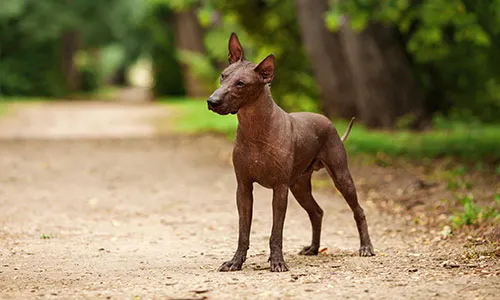 Xoloitzcuintli
Xoloitzcuintli
Also known as the Mexican Hairless dog, the Xoloitzcuintli is an ancient and rare breed that can be hairless or coated. Hairless varieties have a small amount of hair on their heads, and the coated variety possesses a very short, fine coat that sheds minimally. As with any hairless breed, the Xolo requires a bit of extra attention for its skin to protect it from the elements. Xolos are attentive watchdogs and affectionate companions. While they enjoy physical activities like walks and vigorous play, they are known for their tranquil demeanor at home.
Yorkshire Terrier
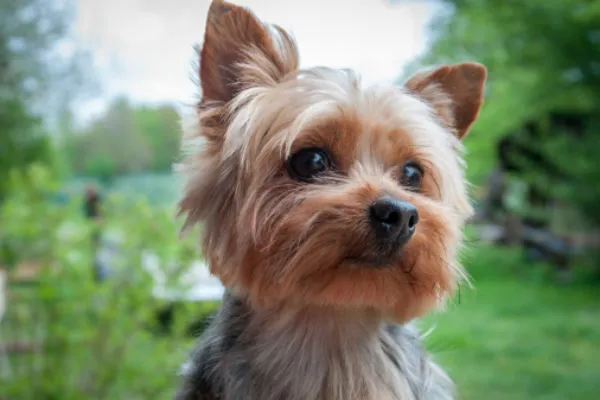 Yorkshire Terrier
Yorkshire Terrier
Sprightly, tomboyish, and affectionate, the Yorkshire Terrier, commonly called the Yorkie, is a Toy breed brimming with personality. These spunky lap dogs are popular for good reason. Yorkshire Terriers do not shed, and their silky coats are beautiful when brushed daily, which is made easy by their small size. Don’t be fooled by their regal appearance – Yorkies have working-class roots, having historically hunted rats in English clothing mills. Today, they are just as happy to snuggle on their owner’s lap as they are to chase a rodent.
Other Small Dog Breeds That Don’t Shed
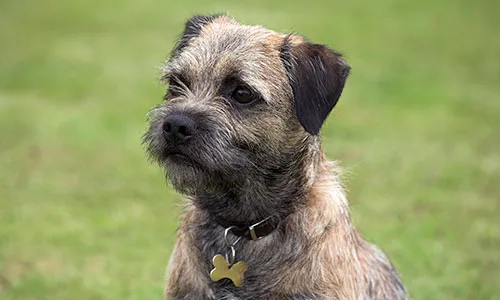 Border Terrier
Border Terrier
The Terrier group is home to numerous small dogs that either don’t shed or shed minimally. Wiry- and coarse-haired Terriers typically shed less than other breeds, making them ideal small dogs for individuals who prefer to avoid excessive hair. Some other non- or low-shedding Terrier breeds include the Border Terrier, known for its friendly disposition and minimal shedding. Many breeds of small dogs do not shed, but it’s important to remember that even a non-shedding dog requires dedicated care. Take the time to thoroughly research non-shedding dog breeds to find the perfect match for your lifestyle and personality. To ensure your pet’s well-being and avoid potential health problems, always purchase a dog from a reputable breeder, feed your dog a high-quality diet, and schedule regular veterinary checkups.
